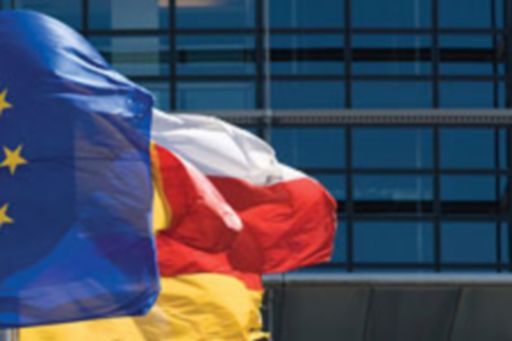Euro Tax Flash from KPMG's EU Tax Centre
Euro Tax Flash from KPMG's EU Tax Centre
ETF 312
Highlights

>> Go back to Euro Tax Flash homepage
Advocate General’s Opinion in the Eqiom and Enka case (previously referred to as the Holcim case)
Freedom of establishment - Free movement of capital - Parent-Subsidiary Directive - Withholding tax on dividends paid abroad - Prevention of tax evasion - Burden of proof
On January 19, 2017 Advocate General (AG) Kokott of the Court of Justice of the European Union (CJEU) issued her opinion in the Eqiom and Enka case (C-6/16), referred by the French Conseil d'État. The case concerned the circumstances in which a Member State may refuse - on grounds of preventing tax evasion or abuse - an exemption from withholding tax that would normally be granted on the distribution of dividends by a resident subsidiary to its non-resident parent company by virtue of the Parent-Subsidiary Directive.
Background
The French tax authorities refused to exempt dividends distributed by a French resident company to its Luxembourg parent company which was, in turn, indirectly controlled by a company resident in Switzerland. This refusal was based on a French provision which attempts to avoid ‘directive shopping’ by requiring the taxpayer parent - if it is controlled by non-EU residents – to prove that the principal purpose behind the structure is not to take advantage of the exemption. The questions referred to the CJEU addressed in particular whether the French rules were compatible with, on the one hand, Article 1(2) of the Parent-Subsidiary Directive which allows the withholding tax exemption to be refused on the grounds of preventing fraud or abuse and, on the other, the EU fundamental freedoms.
The AG’s opinion
The AG concluded, inter alia, that in light of the principle of legal certainty,
Article 1(2) of the Parent-Subsidiary Directive must be interpreted strictly,
as it is an exception not the rule. The national provision at issue sets an
initial presumption of abuse, which approach is beyond what is required to
prevent tax evasion. The mere reference in the French rules to direct or
indirect control by shareholders in third States cannot be regarded as an
indication of tax evasion, for the simple reason that it cannot be said in
general that the tax treatment of profit distributions to companies outside
the EU is more favorable in the Member State of the parent company or the
grandparent company than it is in France.
The AG therefore concluded that the refusal to grant an exemption from
withholding tax based on a general presumption that this will involve tax
evasion is not permissible under the Directive as it precludes a test of the
objective and verifiable facts. The AG highlighted that when applying the
disputed provision, proof of non-fiscal grounds is automatically imposed on
the tax payer without the administration being obliged to provide sufficient
indications of tax evasion.
The AG reached a similar conclusion regarding the fundamental freedoms,
but added that the French rules were in any event not compatible, since
they only required a tax benefit motive without also requiring a wholly
artificial arrangement that does not reflect economic reality.
EU Tax Centre comment
Although the disputed French tax rules have since been amended, this
case could still be relevant for the current rules deriving from the
transposition of the general anti-abuse clause of the EU Parent
Subsidiary Directive. It should also be noted that France, Denmark, Italy,
Spain and the European Commission all submitted written pleadings, while
Germany took part in the hearing. This illustrates the potential significance
of this case for tax provisions and administrative practice in other Member
States. The decision of the CJEU − if it follows the AG’s Opinion – should
therefore be carefully considered in those jurisdictions.
Should you have any questions, please do not hesitate to contact KPMG’s
EU Tax Centre, or, as appropriate, your local KPMG tax advisor.
Robert van der Jagt
Chairman, KPMG’s EU Tax Centre and
Partner, Meijburg & Co
Barry Larking
Director EU Tax Services, KPMG’s EU Tax Centre and
Director, Meijburg & Co
© 2026 Copyright owned by one or more of the KPMG International entities. KPMG International entities provide no services to clients. All rights reserved.
KPMG refers to the global organization or to one or more of the member firms of KPMG International Limited (“KPMG International”), each of which is a separate legal entity. KPMG International Limited is a private English company limited by guarantee and does not provide services to clients. For more detail about our structure please visit https://kpmg.com/governance.
Member firms of the KPMG network of independent firms are affiliated with KPMG International. KPMG International provides no client services. No member firm has any authority to obligate or bind KPMG International or any other member firm vis-à-vis third parties, nor does KPMG International have any such authority to obligate or bind any member firm.